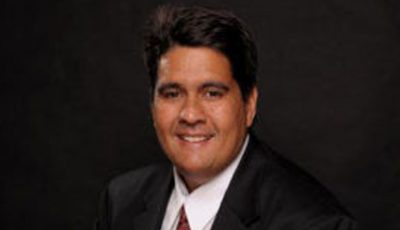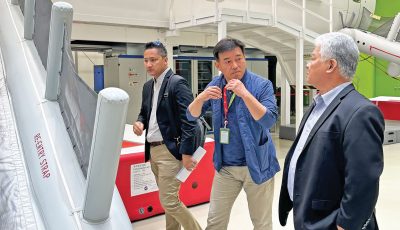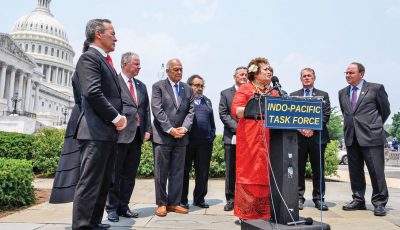Chinese national facing ‘ice’ charges wants to prohibit use of plural pronouns
Plural pronouns mean a lot to the defense of a Chinese national who is facing charges in federal court over methamphetamine or “ice” shipment.
David G. Banes, the court-appointed counsel for defendant Zhaopeng Chen, has filed a motion requesting the U.S. District Court for the NMI to issue an order prohibiting witnesses, interpreters, and counsel from using plural pronouns in formulating questions or providing answers in the upcoming trial.
“Such an order from the court will stave off potential confusion, will reduce the possibility that the jury will be mislead as to defendant Chen’s involvement, presence or knowledge, and will better allow the jury to complete their truth-seeking junction,” said Banes in Chen’s motion in limine.
Motion in limine refers to a request made before the start of a trial asking that the judge rule that certain evidence may, or may not, be introduced to the jury in a trial.
The indictment charged Chen, Xi Huang, and Shicheng Cai with conspiracy to possess with intent to distribute methamphetamine over the shipment of 4.9 lbs of “ice” worth $850,000 in 2015.
A routine Customs inspection at the Port of Saipan of a 40-foot container from Guangzhou, China, reportedly resulted in the discovery of the 4.9 lbs of “ice” hidden in three plastic bags in one of the nine 5-gallon paint containers on Dec. 2, 2015.
Joint federal and local enforcers investigated the discovery of the “ice” that later led to the arrest of the three defendants.
Huang and Cai both pleaded guilty. Huang was recently slapped with 188 months or 15 years and eight months of imprisonment. Cai has yet to be sentenced.
In Chen’s motion filed on Tuesday, Banes asked the court to instruct each witness against using plural pronouns such as “we” and “they,” and instruct the interpreters to never substitute plural pronouns “we,” “they” or any equivalent, but instead to refer to particular individuals.
Banes requested the court to issue an order requiring witnesses, interpreters, and counsel to use the names of the individuals in each question and answer.
The defense lawyer said Huang, during his change of plea allocution, denied that Chen was involved in the conspiracy.
Banes said Cai, during his change of plea allocution, stated that he did not know if Chen was involved.
Banes said the allegation in this case is generally that Chen was a passenger in Huang’s car while Cai, in a different vehicle, picked up paint buckets from a warehouse, put them in his own vehicle, and dropped one of the paint buckets off at a third vehicle.
Later, Banes said, Chen and Huang traded places, and Chen began driving.
The lawyer said Chen was not with Huang and Cai when they obtained the drugs in China, did not make any of the plans to transport the drugs from China, was not with Huang and Cai when the two of them flew together to Saipan, did not stay at the same hotel as Huang and Cai.
Banes said Chen never had contact with Cai before the day of the arrest, and Cai admits that he does not know if Chen was involved in the drug trafficking plan.
Banes said Chen did have contact with Huang’s wife in China, and stayed at the hotel owned by Huang’s wife in China, and stayed at the hotel owned by Huang’s parents while on Saipan.
Banes said there is a real danger that the use of plural pronouns, will confuse the jury, impede the truth seeking function, and prejudice Chen, because without precise language, jury members will think that “they” or “we” includes Chen when it only refers to Huang and Cai.
The lawyer said in this case, Chen is the only individual on trial, and many of the events that will be described by the U.S. government to establish the existence of a drug trafficking conspiracy will involve only the actions and presence of the two co-defendants Cai and Huang, who have already pled guilty.



























